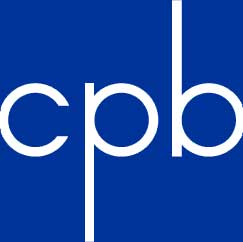
It hasn't been a year to brag about for the Public Broadcasting Service. Four television stations so far this year have dropped their PBS memberships, three at the start of this month...
(Prefatory note: I had hoped this would be a news story about what looks a little like the start of a meltdown, with comments and perspective from the epicenter agency, PBS. But after weeks of requesting an interview on the subject, and no luck, I must ask readers to form opinions without comments from the key player.)
All four of the stations that have bolted of late have claimed high membership costs as the reason for leaving.
KCET, Los Angeles, started the year by dropping out.
On July 1, WMFE in Orlando, WDSC in Daytona Beach and WIPR in Puerto Rico jumped the ship.
KCET reportedly is filling its schedule with shows it produces and non-commercial programming picked up from non-PBS suppliers.
The Puerto Rico station, according to news reports, has been producing a lot of its own programming and will do even more now.
The lame-duck Orlando station sold its TV-broadcast rights to a religious broadcaster, and hoped to pass off the controls on July 1, but has been filling its air with everything but home movies while waiting for the Federal Communications Commission give final approval to the sale.
A partnership of the stations at nearby University of Central Florida and Brevard Community College -- put together in just weeks after WMFE's surprise announcement -- has managed to keep PBS programs on the air in Central Florida.
But it's the Daytona Beach station's strategy that really should worry PBS most.
It is part of a regional college, Daytona State College, trying to cope with the economy. Rather than sell, close or join forces with the Orlando and Brevard stations, it now only uses programs from other suppliers at a much smaller cost.
The decision cut somewhere between $185,000 and $200,00 from the school's costs, outgoing General Manager Bruce Dunn said Wednesday -- a savings that was nullified when Florida's governor made a sizable cut in state funding to the state's public radio and television stations.
WDSC's programs now come from American Public Television, Executive Program Services, National Educational Telecommunications Association and others, which collectively supply an abundance of public-television programing at a much smaller cost than PBS.

Some of the shows are as established and as well-known as anything PBS offers -- including cooking shows from Lidia Bastianich and Cooks Ilustrated's Christopher Kimball, travel shows hosted by Rick Steves (right) and Rudy Maxa, other long-running series and one-time specials that appeal to public TV's selective audiences. All are noncommercial and many are extraordinary independent productions.
Dunn, who was the WDSC general manager for six years, said the surprise nature of WMFE's announcement to sell left his school with little time to help devise a rescue. The Orlando-area market's three public stations previously had worked under a sort of gentlemen's agreement to complement each other, rather than compete for supporters, he said.
WMFE's decision to not clue in the others, he said, left "Daytona State College (where) it just wasn't in the picture to spend more money. Quite frankly, when that happened, it became a domino effect."
Reduced funding for public broadcasting, combined with the threats of conservative lawmakers to cut even more, has the potential to make such polite agreements more difficult to maintain. Dunn said there are 17 similar "overlap" communities in the country that could experience the same sort of financial crisis.
It would have been helpful to know what PBS is doing to keep and support its member stations, in light of the four recent defections. Especially threatening to PBS, it would seem, would be for more stations to stay alive by dropping PBS membership, but keeping access to a wealth of public-TV programming, as WDSC did -- at an appreciably smaller cost.

The Corporation for Public Broadcasting, which disburses the money Congress votes to fund a portion of the cost of public radio and television, is said to be working to keep stability in the public television universe by encouraging partnerships such as the one that emerged in the Orlando area. Several requests for information about this from CPB had not been answered, however, by the time this story was written.
Perhaps, someday, Frontline or PBS Newshour will do a story on this threat to the best television America offers.
If it does, the opening question could be: How many stations will be left to carry the report?